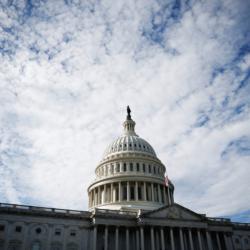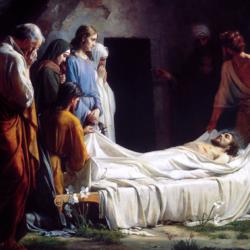Group opposing Revere High contraception passes hurdle
REVERE -- For the last seven months, Kathy Magno and a concerned group of citizens in Revere have been working to overturn a February decision by the school board in the town that allows the distribution of contraceptives, including the morning after pill, at Revere High School.
“There’s no place for it there because it sends the message to the kids that sexual activity is a foregone conclusion,” Magno said. “It’s more or less saying, ‘We know you’re going to do it. We’ll make it easier for you. You don’t have to walk up the street.’”
On Feb. 24, the Revere School Board voted 4-2 on the current policy, which allows those students who have prior parental consent, to receive free condoms, or any other method of contraception available over the counter, from the in-school health clinic operated by Massachusetts General Hospital. The policy also includes Plan B, also known as the morning after pill.
By the Sept. 4 deadline, Magno and her organization had secured enough signatures from registered voters in the town via a citizens’ initiative petition to potentially place the measure on the ballot in November. Unless the school board agrees to comply with the petition by Sept. 29, a referendum on the ballot would ask voters to temporarily suspend distribution at the school and create an advisory board to study the risks and benefits of contraception and abstinence. If the measure passes, the council would make a recommendation on the program to the Revere School Committee.
Magno also disagreed with the manner in which the school board passed the measure. It was voted on without public forums or specific mention in the Feb. 24 meeting agenda. The policy was deliberated in subcommittee meetings.
“There was no agenda announced,” said Father George Szal, pastor of Immaculate Conception Church in Revere, who encouraged his parishioners to sign the initiative petition. “There was a decision made without consultation from the community.”
Revere’s Superintendent of Schools, Dr. Paul Dakin, said that meeting agendas do not contain specific items but rather broad topics. For example, an agenda will say “Chairman’s report” or “subcommittee’s report.”
“It wasn’t handled any differently,” Dakin said. “It wasn’t hidden.”
After she heard of the school committee’s actions, Magno and her crew asked to be placed on the agenda for a future meeting, with the school board obliging. At the meeting, they asked the school board to change their decision, and the board declined the request. Subsequently, she and her colleagues obtained 600 letters from concerned citizens and presented them at another meeting. Still, the school board did not change their decision.
At that point, she began work on a citizens’ petition initiative, a right guaranteed by the state constitution.
“Basically, it was the last resort,” she said.
According to town rules, Magno’s petition drive had to secure signatures from at least 8-percent of the town’s registered voters to have the referendum placed on the ballot. Needing 1,874 signatures, Magno and her crew were able to secure 1,909, not including 600 that were later invalidated. They went door-to-door, and collected signatures at grocery stores, the shopping mall near Revere Beach, and outside churches like Immaculate Conception, St. Anthony Church, and local Protestant churches.
“Before it gets to the point where it’s normal for school committees to be acting this way, we wanted to say you’re talking about parental rights and our kids. We should have a say,” Magno said. “There’s an accountability side to this.”
Superintendent Dakin, a Catholic who previously served over 20 years as a teacher and administrator in a Boston Catholic school, argues that opponents are mischaracterizing the policy, when it instead promotes family choice.
“I’m not one who wants to get in the middle of a decision made between a doctor, parent, and child about what is medically in the best interests of the child,” said Dakin.
He also explained that this policy would lead to more parent-child discussion on issues of abstinence and the risks of premarital and unprotected sexual activity.
“To us, that is safer than having a student go to any public clinic without the knowledge of a parent or primary care physician,” Dakin said. “The policy encourages parents and doctors to talk things out.”
Under the state’s Emancipated Minors’ Law, a child can visit a public health clinic to obtain contraception, without prior knowledge by a parent or physician. Mass. General operates a clinic approximately one-half mile from RHS.
Dakin said that approximately 400 students have been opted into the program. This year, Revere High School boasts an enrollment of 1,524, according to www.city-data.com.
For the last eight years, Mass. General has operated a health clinic on the high school campus at no cost to the city. However, the clinic did not provide reproductive health services.
With teen pregnancy rates rising in recent years, both in Revere and other local municipalities, the school committee sought to take action.
According to Dakin, Revere High saw 12 teen pregnancies last year, compared to two in 2007. Further, according to the 2007 Massachusetts Youth Risk Behavior Survey, Revere High students were above state averages in terms of sexual activity. For example, 54 percent reported having sexual intercourse, higher than the state average of 44-percent. 9 percent of RHS students reported either becoming pregnant or impregnating someone, with the state average being 5 percent. Finally, 31 percent reported having sex with four or more partners, far above the 12 percent state average.
In developing their policy, Revere followed the lead of the town of Gloucester, which also witnessed a spike in teen pregnancy at Gloucester High School in 2008, when 18 girls became pregnant, prompting national publicity. In response, the Gloucester School Board adopted a parental notification policy, according to Gloucester School Committee Chairman Greg Varga.
Last summer, the school board in Gloucester voted to allow the distribution of contraceptives to those students who had parental permission. Parents could also opt out of contraceptives, instead granting permission to use the health center only for other health services.
In Gloucester, students can receive condoms or other prescription methods of contraception, but the school board did not grant access to Plan B through their policy. The policy was adopted after several meetings with health leaders and proponents of an abstinence-only approach.
Varga said that abstinence still has a place in the sexual education curriculum at the high school. He also said the high school implemented a mentoring group to assist students.
“We took a holistic approach,” he said. “That was just one aspect of the approach we were trying to take to get things back to a normal way.”
Since that time, according to Varga, the pregnancy rate at the high school has stabilized, and that the number of teen pregnancies there was far less than other North Shore towns. Per capita, other communities surpassed Gloucester, but he acknowledged that Gloucester truly witnessed a spike, given the enrollment at the high school. This year, it is at 1,244, according to www.city-data.com.
Currently in Revere, parents can opt to allow their children to use the services offered by the Mass. General clinic but not grant permission to their child to obtain contraception there. Dakin said that 400 students have been enrolled in the clinic, but only five have been enrolled into the contraception option since the current policy was implemented.



















